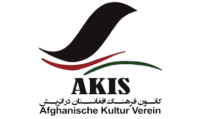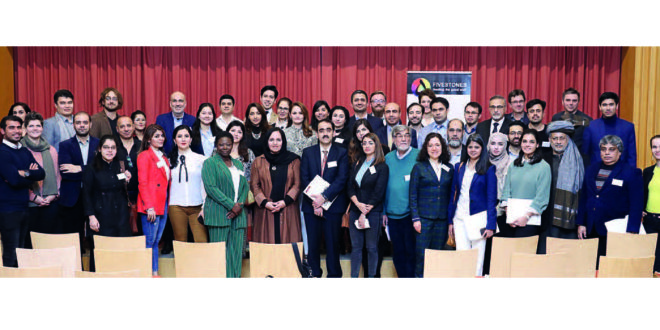Hier finden Sie den PDF-Daten.
Ali Ahmad
Final Report: March 2020
Examples of good practice and recommendations from the Vienna Networking Conference “Knowledge Transfer and Support”
On 2 and 3 December 2019, the VIDC held a networking conference entitled “ Knowledge Transfer and Sup-port. The Role of the Afghan Diaspora in Europe”, in Vienna, Austria. For the first time in Austria, the conference brought Afghan diaspora organisations and experts from nine European countries together with public institutions, international organisations and development NGOs in order to highlight the diversity of Afghan associations and discuss best practice examples from various European countries. In the plenums and workshops of the conference, the status quo of diaspora and migration policy in Europe and Afghanistan was discussed, as well as financing models, networking of Afghan diaspora organisations, (self-)empowerment of Afghan women, the challenges of project work in Afghanistan and Pakistan, and the problems of Afghan refugees in Pakistan and in Europe with regards to integration. In addition, the more than 100 participants of the conference developed recommendations for future measures and for a better integration of Afghan diaspora organisations in development and migration policy.
The VIDC took the conference as an opportunity to produce a guide on “Examples of Good Practice” of Afghan diaspora organisations. This guide presents 20 promising development projects from five countries that have been implemented by Afghan diaspora organisations in Europe since the Taliban were ousted from power by US-led coalition troops in 2001. In addition, the guide presents five projects of active Afghan diaspora initiatives in Austria, which are mainly active in the intercultural field. The guide is intended to support European development organisations and donor countries in using the potential of Afghan diaspora organisations and to provide an incentive for development cooperation in Austria. The draft guide was discussed at the conference and a chapter on challenges and recommendations was added.
Making these diaspora initiatives visible, and promoting them, is of central importance to the VIDC. Most of the actors from the diasporas who are committed to development policy are barely noticed in the development policy scene. This is due to the fact that diaspora organisations are very often only informally organised or are only weakly institutionalised themselves; they mainly carry out voluntary work and have few re-sources available for marketing and lobbying. Nevertheless, they provide individual and collective services for the countries of origin and thus support private health care, education and other comparable development co-operation services. It is difficult to assess the extent to which diaspora organisations influence developments in their respective countries of origin (or that of their parents). In most cases, the discussion on this topic refers to remittances made by migrants to their countries of origin. According to the World Bank, $USD551 billion of these remittances flowed to low and middle-income countries in 2019, which is three times as much as was made available for development cooperation and aid worldwide in the same period.
For this guide we would like to thank Ali Ahmad in particular, who researched the “Examples of Good Practice” with great perseverance and commitment and prepared the results of the conference for us. We would also like to thank the conference rapporteurs – Aadilah Amin, Abdulrab Habibyar, Sola Safi and Zafar Shayan – for compiling the challenges and recommendations. We would also like to thank the Afghan associations AKIS, NEUER START, Afghan Wulas, KATIB, the Intercultural Development Centre, the student organisation IGASUS and Fivestones for their support in research and the years of good cooperation with the VIDC. Finally, we would also like to thank our editor Kim Traill, who ensured that the guide became a coherent document.







